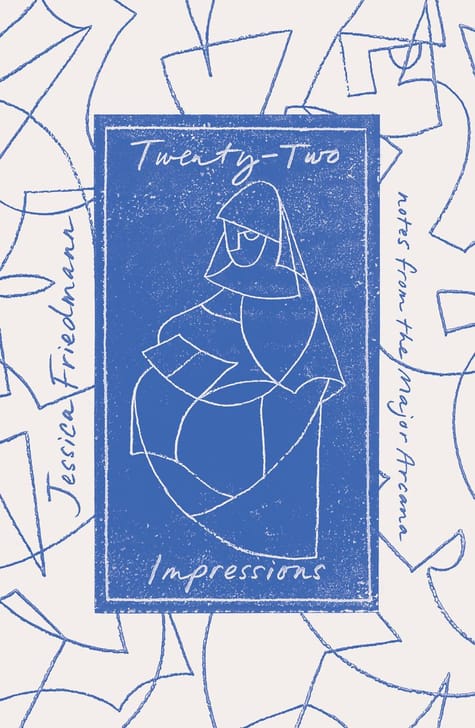Twenty-Two Impressions:
notes from the Major Arcana
Overview
A poetic new essay collection in which the symbols of the tarot brush up against life in a changing world.
The Tarot de Marseille is a 16th-century set of playing cards, the deck on which the occult use of tarot was originally based. When Jessica Friedmann bought her first pack, the unfamiliar images sparked a deep immersion in the art, symbols, myths, and misrepresentations of Renaissance-era tarot.
Over the years that followed, and as tarot became a part of her daily rhythm, Friedmann’s life was touched by floods and by drought, by devastating fires and a pandemic, creating an environment in which the only constant was change.
Twenty-Two Impressions: notes from the Major Arcana uses the Tarot de Marseille as a touchstone, blending historical research, art history, and critical insights with personal reflections. In these essays, Friedmann demonstrates how the cards of the Major Arcana can be used as a lens through which to examine the unexpectedness — and subtle beauty — of 21st-century life.
Details
- Format
- Size
- Extent
- ISBN
- RRP
- Pub date
- Rights held
- Hardback
- 198mm x 129mm
- 272 pages
- 9781913348960
- GBP£12.99
- 16 January 2025
- World
Praise
‘Jessica Friedmann’s essay collection Twenty-Two Impressions sheds novel light on the potential of the tarot to guide how people move through and experience life … [these] essays draw connections between the cards and broader concepts, world events, and personal experiences … Friedmann is an honest narrator who acknowledges and relates to spiritualism skeptics … A misunderstood cultural phenomenon is used as a window to the human experience in the personal essay collection Twenty-Two Impressions.’
‘These elliptical essays form a paean to the tarot and its transformative potential … Friedmann’s luminescent prose underscores how the tarot — maligned by some and simply misunderstood by others — can be embraced to access deeper nuance and introspection.’
About the Author
Jessica Friedmann is a writer, editor, and independent scholar. Her first essay collection, Things That Helped, was published by Scribe (2017) and FSG (2018).

